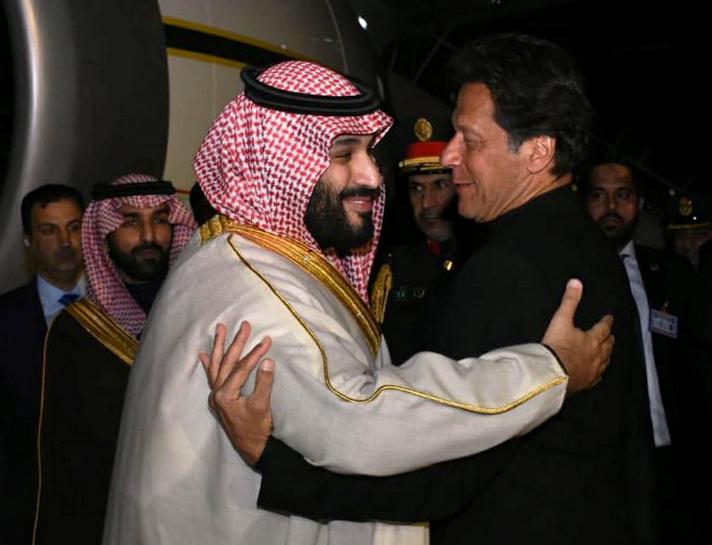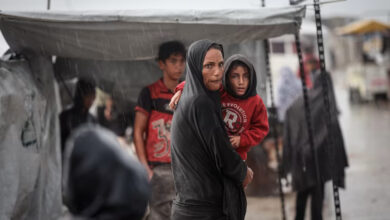
The recent visit by the Indian chief-of-staff to Saudi Arabia has marked not only a major step in the countries’ military dialogue — but more so, it has sent a strong signal to nearby Pakistan: Riyadh’s politics bear undeniable signs of increasingly becoming a balancing act between India and Pakistan.
The meeting marked another milestone in increasingly tense relations between the Middle East economic superpower Saudi Arabia and its nuclear-equipped — but financially inferior — ally Pakistan.
“The Pakistani-Saudi relations have certainly been complex all along but since 2015, when the Pakistani parliament banned the Pakistani military from participating in the war in Yemen, their relations with Saudi Arabia haven’t become any easier,” James M. Dorsey, a senior fellow at the S. Rajaratnam School of International Studies and the Middle East Institute in Singapore and author of the acclaimed political blog‘The Turbulent World of Middle East Soccer’, tells DW.
Multiple layers of discontent
The military conflict in Yemen is not the only region that has caused disputes between Saudi Arabia and Pakistan. In February, Pakistan had expected Riyadh to support them in dealing with India over the Kashmir crisis — which in May has since resulted in renewed clashes between India and Pakistan. In particular, Pakistan had requested a supportive meeting with the Council of Foreign Ministers of the Organization of Islamic Cooperation (OIC). After Saudi Arabia turned down the request, Pakistan repeated its demand, which in turn resulted in Riyadh calling in a $1 billion loan.
Consequently, Pakistan repaid the loan with a new loan — but this time, coming from China.
It is no surprise that China’s Belt and Road Initiative and the country’s decision to lend $1 billion is welcomed by Pakistan’s Prime Minister Imran Khan, who is in need of new allies.
Experts, however, believe that Beijing is also in a diplomatic state of wariness as it needs Saudi oil. Jeremy Garlick, author of “The Impact of China’s Belt and Road Initiative: From Asia to Europe” and an assistant professor at the University of Economics in Prague, is convinced that China will “play a waiting game at this stage and try not to become involved in Middle Eastern politics for as long as possible.”
Expert James Dorsey agrees: “I don’t think that the Saudis can really afford to make a choice between India and Pakistan, while the Pakistanis wouldn’t want to be dependent on China either.”
An ongoing balancing act
Saudi Arabia has significant investments in India, which is also a major buyer of Saudi oil. This explains Saudi Arabia’s dwindled support for Pakistan’s stance on Kashmir. “But to be fair, the Saudis were very helpful to the Pakistanis when they needed it,” says Dorsey.
The initial $1 billion loan was part of a $6.2 billion package when Pakistan needed cash to help counteract the country’s sky-rocketing trade deficit and declining foreign reserves in November 2018. According to Pakistani media, the package included $3 billion in loans and a $3.2 billion oil credit facility that was, however, suspended in May 2019.
While Saudi Arabia is the regional superpower, it also needs Pakistan due to its proximity to Afghanistan and rival Iran, says Dorsey. Moreover, Pakistan is home to the world’s largest Shiite minority.
On the other hand, Pakistanis form the second-largest group of immigrants in Saudi Arabia.
Despite the fact that Riyadh has already sent back tens of thousands of (mainly male, blue-collar) workers, the money the remaining immigrants transfer back home to Pakistan has a significant impact on the Pakistani economy.
Open and closed doors for new allies
In addition to these sources of tension, Pakistan’s Prime Minister Khan has told regional news outlets that he was pressured by two Arab nations to “normalize relations with Israel.” Those who know the region’s geopolitics know that Khan is likely referring to the United Arab Emirates and Saudi Arabia.
DW contacted the Pakistani ambassador to Germany for comment but received no reply.
By Jennifer Holleis
IMAGE: Pakistani Prime Minister Imran Khan (R) greets Saudi Arabia’s Crown Prince Mohammed bin Salman on his arrival at Pakistan Air Force (PAF) Nur Khan Base in Rawalpindi, Pakistan February 17, 2019. Press Information Department (PID)/Handout via REUTERS




